Discovery of Geysers on Enceladus movie
|
This movie is about Enceladus. Enceladus is one of Saturn's moons. Scientists think they have discovered geysers on Enceladus. The geysers are near the moon's South Pole. The geysers may be like "Old Faithful" in Yellowstone Park. Old Faithful shoots out hot water. The geysers on Enceladus shoot out cold water or ice! The scientists used pictures and other data from the Cassini spacecraft to make this discovery. This movie is from NASA/JPL.
If you cannot see the movie, you should make sure you have the latest version of Apple's QuickTime plugin on your computer. |
You might also be interested in:
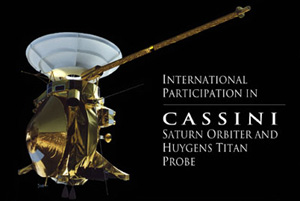
Cassini is the name of a robot spacecraft. Cassini is studying the planet Saturn. It is also studying many of Saturn's moons and Saturn's cool rings. Cassini blasted off from Earth in 1997. It took Cassini
...more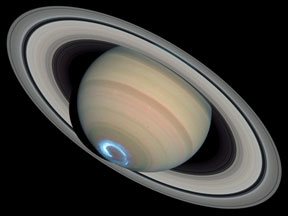
There's a lot of strange stuff going on at both the North and South Poles of Saturn. Two of Saturn's moons also have interesting polar regions. Let's take a look! The atmosphere and clouds are quite odd
...more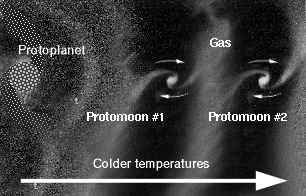
Titan is like other icy moons. Scientists want to know "how come Titan is the only one that has a big atmosphere?" Titan formed the same way other planets did, as shown in this picture. Where Titan formed,
...more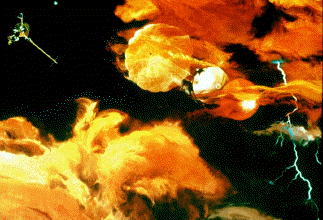
The air of Titan is a lot like the Earth's, except that it is very cold, from -330 degrees to -290 degrees! Like the Earth, there is a lot of Nitrogen and other complex molecules. There also may be an
...more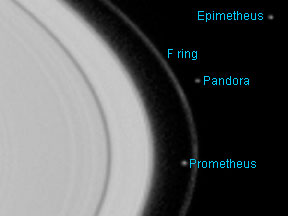
Pandora is a small moon of Saturn. It was discovered by S. Collins and others in 1980 from photos taken by the Voyager 1 spacecraft. Pandora's name comes from Greek mythology. Pandora was the first woman,
...more
Prometheus is a small moon of Saturn. It was discovered by S. Collins and others in 1980 from photos taken by the Voyager 1 spacecraft. This moon's name comes from Greek mythology. Prometheus was a Titan
...more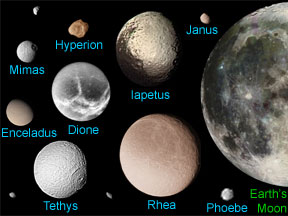
Saturn has // Call the moon count function defined in the document head print_moon_count('saturn'); moons. Many of those are tiny chunks of rock or ice only a few kilometers (miles) across. One of Saturn's
...more













